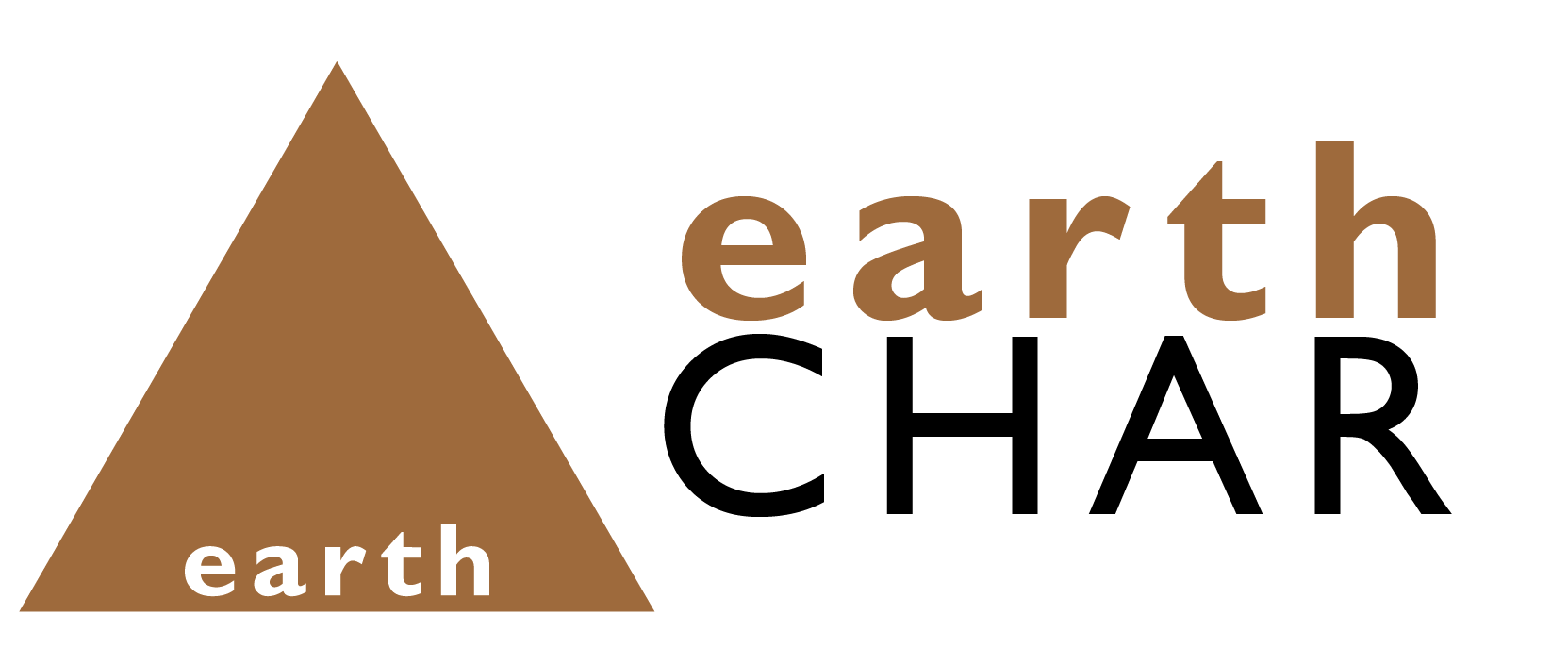What Is Biochar?
Everything You Need to Know
Biochar is produced by super heating biomass with little to no oxygen. Common feedstocks used to make biochar include grass, wood, hulls, manure, or anything that was living or came from something living.
During the production process, these materials develop a porous structure that’s stable and carbon-rich. The biochar characteristics depend on the feedstock, the processing temperature and the time processed, so not all biochars are created equal or useful for the same purpose.
an Extraordinary Journey
the History of biochar
While you might think that biochar is a new product, the truth is that it has a long and rich history!
Natural elements have always created biochar. When vegetation catches fire in the wild, some of this vegetation ends up buried under the soil while it’s still smoldering or on fire. When this happens, it creates a super-heated biomass high in carbon, and today we call this biochar.
While modern technologies have made it easier to produce biochar in larger quantities, humans in the Amazon Basin of South America have been making biochar for at least 2,500 years! This process allowed humans in the region to farm on otherwise unproductive soil, and you can still find biochar in about 10 percent of the Amazon’s soil.
Early human-made biochar was not environmentally friendly because the production process resulted in half the carbon from the biomass being released into the atmosphere, but modern production techniques don’t produce this waste!
uncovering the production
How Is Biochar Made?
Historic methods of producing biochar involved piling and covering waste biomass and then burning it slowly with limited access to air. This process allowed the biomass to reach the necessary temperatures to turn into biochar without completely snuffing out the fire.
Although they use the same principles, modern techniques are more efficient. Present day methods to make biochar involve a process called pyrolysis, the process of super heating the biomass with limited oxygen in a
closed
system.
This closed system ensures that none to very little of the carbon escapes. It’s an environmentally-friendly solution that also improves the efficiency of the entire process.
unveiling the power
How Does Biochar Work?
Biochar has several elements that make it an excellent soil amendment, all without actively providing nutrients for the soil. Biochar's negatively charge attracts positively charge nutrients, making them more available to plants.
Naturally raised pH level in the soil which has numerous benefits. Higher pH levels improve root development and microbial functions, which are all great for plants.
Biochar also has a porous honeycomb structure that helps with moisture retention and makes a home for beneficial microbes.
The picture to the left shows the corn row on the right without Metzler growCHAR compost and the left with growCHAR biochar compost. The growCHAR row produced 50 ears of corn, and the no biochar compost row produced 35 ears.
revolutionizing your crops
Biochar and Agriculture
Biochar is an increasingly used soil amendment in the agriculture industry, and there’s good reason for it. Humans have been using biochar to increase soil fertility for thousands of years, and it’s stuck as an effective solution for so long because it works.
It’s not a fertilizer, it’s a soil amendment that can help improve crop yields by improving the composition of the soil itself.
Uncover the Perks
What Are the Main Benefits of Biochar?
Some of the primary benefits of biochar include increased nutrient uptake and improved moisture retention in soil. Biochar helps improve the benefits you get from fertilizers, allowing you to use less fertilizer and get higher crop yields.
Biochar is also environmentally-friendly when used in the construction industry to help reduce the carbon footprint of concrete, and environmental engineers add it to contaminated lakes and waterways to help reduce pollutants.
potential limitations
Are There Any Drawbacks to Biochar?
There is no bad biochar, just the right biochar for the right purpose. You can learn more about the right biochar and useful application rates in our website.
results
How to Use Biochar Effectively
Biochar should be inoculated by using it as in input for your compost production; or added it to your favorite compost and let to percolate for a few weeks.
Once you apply biochar, you can call it one and done; or apply it a bit every year. It’s not a fertilizer, it’s a soil amendment, so it continues to add benefit to your planting projects long after it's application.
Where
Where Can I Find Biochar?
You can buy Metzler biochar products in cubic foot cosumer bags at our landscape center in Reedsville PA, or by contacting us to make arrangements for pickup or delivery of our biochar products loose bulk, in super sacks or in consumer cubic foot bags.
faq'S
Common Questions about Biochar
If you’re considering purchasing biochar, it’s perfectly normal to have a few questions. We understand, and that’s why we decided to answer some of the most frequently asked questions for you here!
-
What is biochar made from?
Biochar is made from biomass like forestry products, green waste or manures. Our biochar is produced from sustainable co-products from local sawmills.
-
What is biochar good for?
Biochar has a wide range of useful applications. It improves crop yield by improving moisture retention and nutrient availabillity in soil, it sequesters carbon in soil and building products, it filters stormwarer, it is useful in animal production and so much more. You can see more about this throughout our website.
-
Does biochar really work?
Yes! See for yourself by searching our website.
-
What is the difference between biochar and charcoal?
Biochar and charcoal feature different production techniques, come from different source materials, and have different chemical and physical properties. Both are charred products, but charcoal comes strictly from wood or plant material processed at a lower tempurature, while biochar can come from all types of biomass processed at higher tempuratures.
Biochar improves your soil, water and building products; charcoal cooks your food.
-
What is activated biochar?
Activated biochar is the result of post processing boichar to increase it's surface area or to add some benefitial element.
-
How does biochar help soil?
Biochar helps soil by improving moisture retention, making nutrients more available to plants, and providing a home for beneficial microbial growth. Check out the results in our website.
-
How long does biochar last in soil?
Biochar will last for decades in soil. It’s not a fertilizer so you don’t need to reapply it. Once you put it in the ground you’ll see benefits for years to come!
-
Does biochar affect soil pH?
Maybe. Different feedstocks produce biochars with different pH.
-
Is biochar sustainable?
Yes! Bichar made with sustainable feedstocks are sustainable. Our biochar is made from sawmill co-products produced through sustainable timber harvesting.
We also use the process heat to displace 350,00 gallons of propane in our firewood drying facility.
-
Can I use biochar in my garden?
Yes! Biochar is a great soil amendment that can help with crop yields through increased water retention and nutrient transfer. It is best used when innoculated with compost or compost tea.
All Rights Reserved | Metzler Biochar








